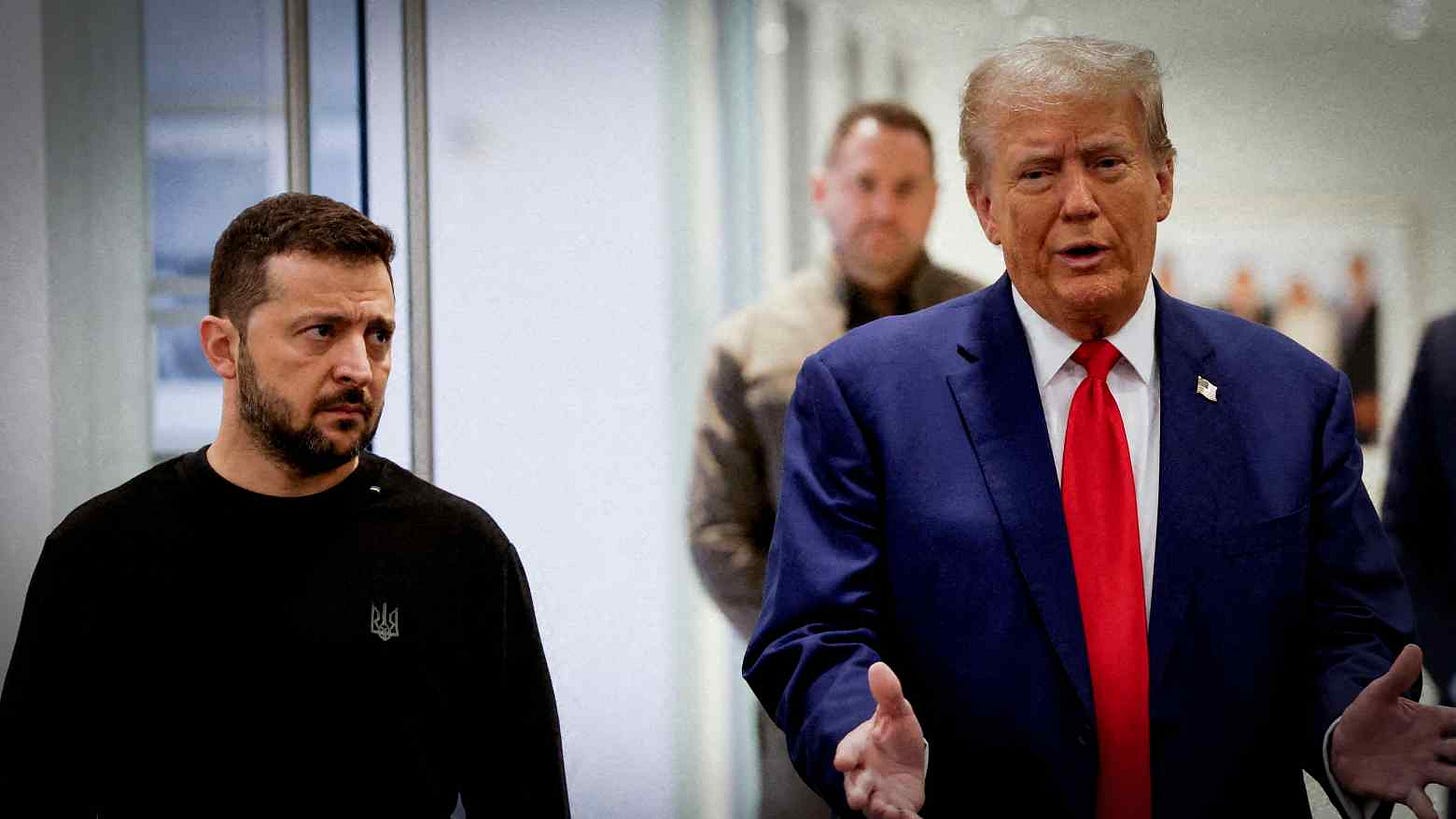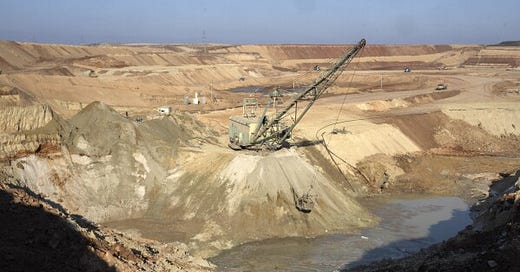This is a short update, revising the game theoretic scenario exploration that I conducted previously, concerning the geopolitical implications of agreements related to the future of Ukraine’s mineral and other natural resources. The original scenario was premised on an ‘out of the box’ intervention by the Russians, who argued that they would support Ukraine retaining 100% ownership of its resources as part of any peace settlement. Thus far, as the negotiations between Ukraine and the US unfolded - to a point where it appears that a draft ‘high level agreement’ of sorts1 has been hammered out, the Russians have expressed a disinterested position.
Rather, what we have learned is that the French have been negotiating future resource off-take agreements on commercial terms, rather than as a reparations mechanism like the U.S. proposal. This reshapes the geopolitical dynamics, creating opportunities for China and new tensions between the U.S. and the EU over control of Ukraine’s reconstruction and resource wealth.
Updated Scenario
Let’s start by updating the scenario. In the revised situation, the EU Steps in as a more attractive economic partner for Ukraine. What the Russians do is not material to this scenario. This is based on the fact that France negotiates an off-take agreement for Ukrainian resources, avoiding the U.S. “reparations-style” fund, which Ukraine sees as exploitative. Ukraine prefers the EU approach because it guarantees revenue at market rates, without the permanent loss of 50% of proceeds to the U.S. However, the EU lacks mining and processing capacity, so it must turn to China for investment and technological expertise. China emerges as a key economic player in Ukraine’s reconstruction, benefiting from industrial partnerships. (Note that all of this presumes that there are some worthwhile and economically viable resources to begin with. And there are doubts about that.)
Reactions and Implications
U.S.-EU Tensions Escalate Over Control of Ukraine’s Resources
So, what are the reactions? Ukraine proceeds to sign the agreement with the US, which actually commits the Ukrainians (and the Americans) to not much other than to then negotiate a ‘fund agreement’. Meanwhile, the Ukrainians proceed with the EU offer. The U.S. sees the EU deal as undermining its control over Ukraine’s post-war economy. Washington’s most likely response is to attempt to pressure Ukraine to reject the French deal, arguing that:
The U.S. paid the most to support Ukraine and thus deserves long-term economic returns. This is something the EU disputes.
EU-China cooperation threatens Western security by allowing China to gain a foothold in Ukraine.
The EU resists U.S. pressure, seeing this as a chance to establish strategic autonomy from Washington. The EU calculates that the US may, in fact, be compelled to increase its commitment to NATO as discussed below, rather than reduce it, thereby putting the EU into a stronger position to ‘lock the Americans in’.
China Becomes Indispensable to the EU and Ukraine
The EU, unable to mine or process Ukrainian resources, turns to China for investment. China, in return, secures long-term access to raw materials and influence over EU supply chains. Given Trump’s 25% tariffs on the EU, this move may open up a wider detente economically between China and the EU on both trade and investment fronts.
At the same time, Ukraine welcomes Chinese involvement because:
China is not demanding permanent resource ownership, unlike the U.S.;
China has the capital and expertise to rebuild Ukraine’s industrial base; and
China is less politically entangled in NATO’s security debates.
This deepens China-EU economic cooperation, creating a new power axis that challenges U.S. influence in Europe.

U.S. Faces a Strategic Dilemma: Retaliate or Recommit to Europe?
The U.S. must decide how to respond to potentially being sidelined from Ukraine’s economic future. It has some options.
Option A: Economic Pressure on the EU and Ukraine
Firstly, the U.S. could threaten secondary sanctions on companies engaging in Ukraine-China mineral deals. It could also threaten more tariffs etc. It could push NATO allies to reject Chinese investment in critical industries.
But this risks worsening U.S.-EU tensions and pushing France and Germany further toward China.
Option B: Military Recommitment to Europe
Alternatively, the U.S. could strengthen its military presence in NATO to maintain influence. This would delay the Pacific pivot, benefiting China strategically. However, this does not guarantee economic control over Ukraine’s resources.
Option C: Accept the Shift and Focus on the Pacific
The U.S. could reduce its commitment to Europe, acknowledging that it cannot block EU-China economic cooperation. This would be a bitter pill to swallow, given the personal stakes involved in ‘doing a deal’ to ‘get our money back’. On the plus side, this would free up resources for the Pacific, but weaken U.S. control over Europe’s economy. It would also concede long-term economic influence in Ukraine to China, but potentially mediated through the EU.
Final Outcome: China and the EU Strengthen Their Position at the U.S.’s Expense
This upshot is that France (and the EU) secure resource off-take from Ukraine, while China provides the industrial capacity to process and develop the supply chains. The U.S. is forced to either escalate tensions with Europe or accept that its economic grip on Ukraine is slipping. China strengthens its ties with Europe, thwarts U.S. plans to isolate it, and weakens U.S. leverage over NATO allies.
This variation further accelerates the trend of U.S. strategic overextension, ensuring that the EU and China grow closer, while the U.S. struggles to maintain its dominance over Ukraine and Europe’s economic future.
For the full text see: https://www.eurointegration.com.ua/eng/articles/2025/02/26/7205922/ Without going into it too much here, the document as presented has a hurried, schoolyard-ish character to it. It has few meaningful commitments, is vague on defining the scope and hinges on the details to be thrashed out as part of a ‘fund agreement’. Given how vague the document is, one wonders whether Zelensky doing little more than trying to work the Americans into a position where the US is re-entangled in the Ukrainian briar.




